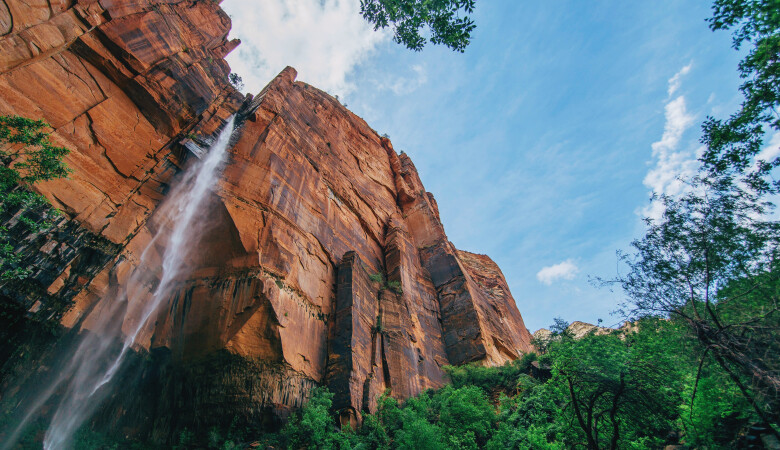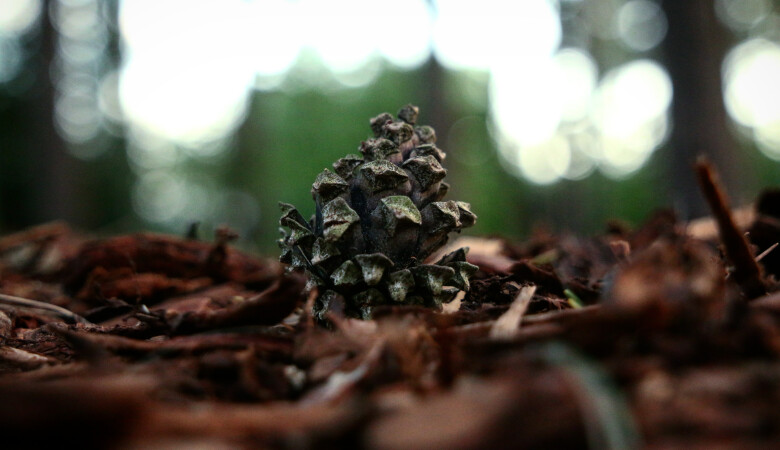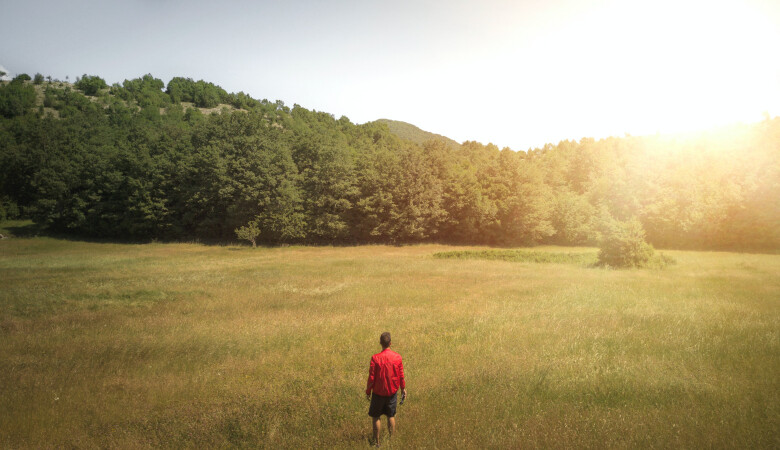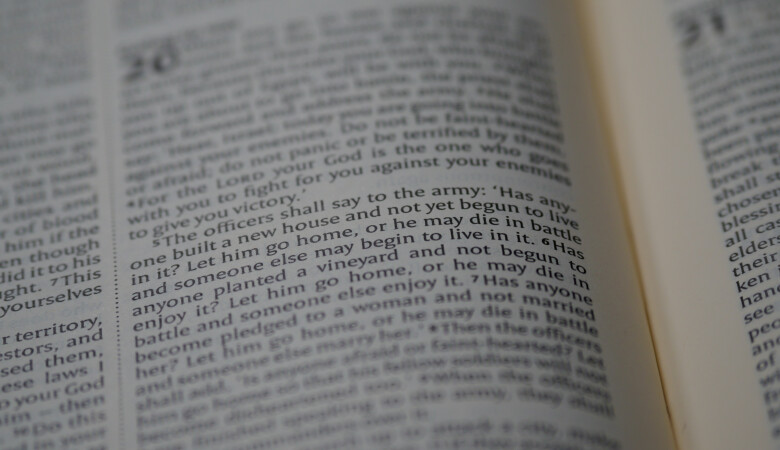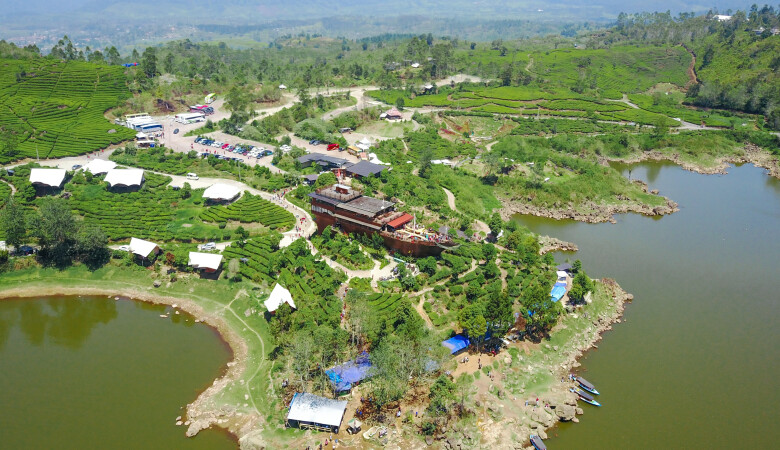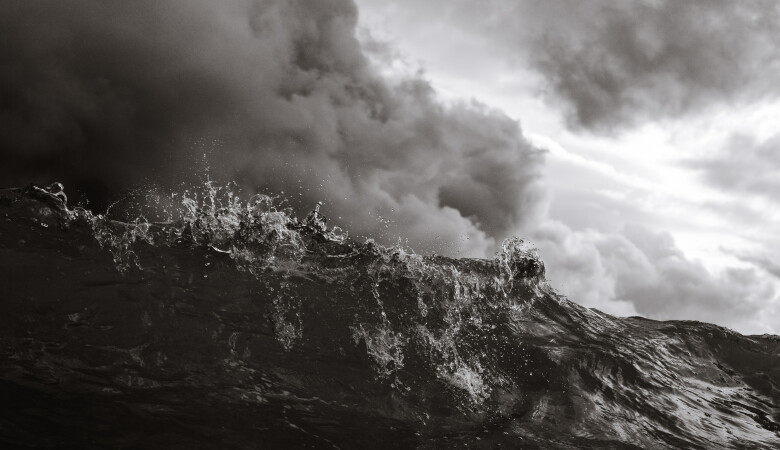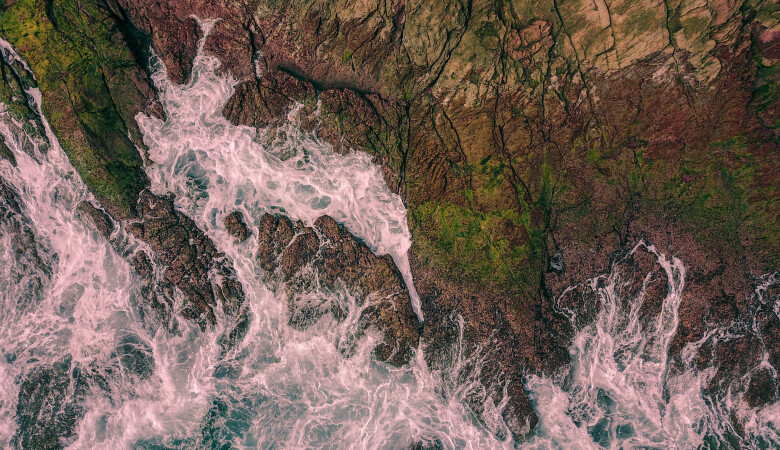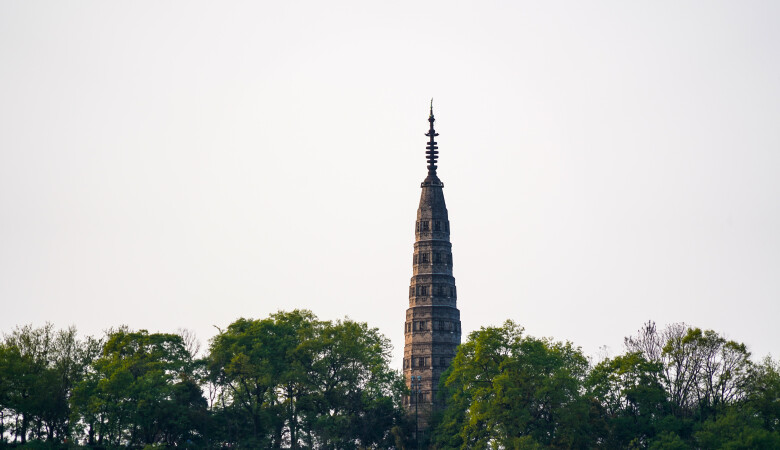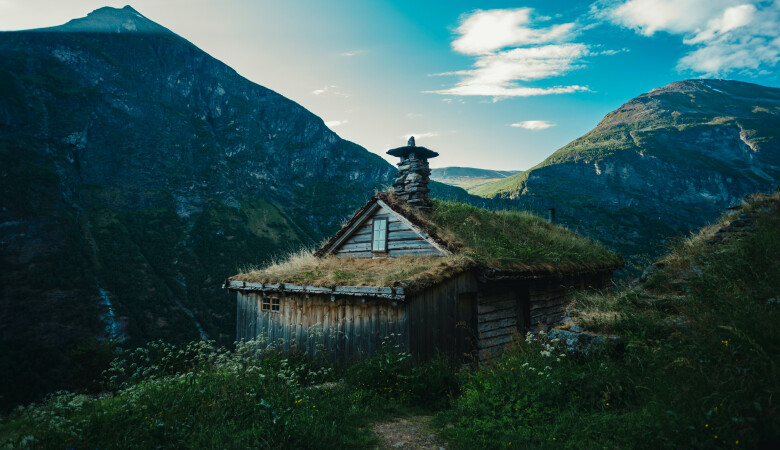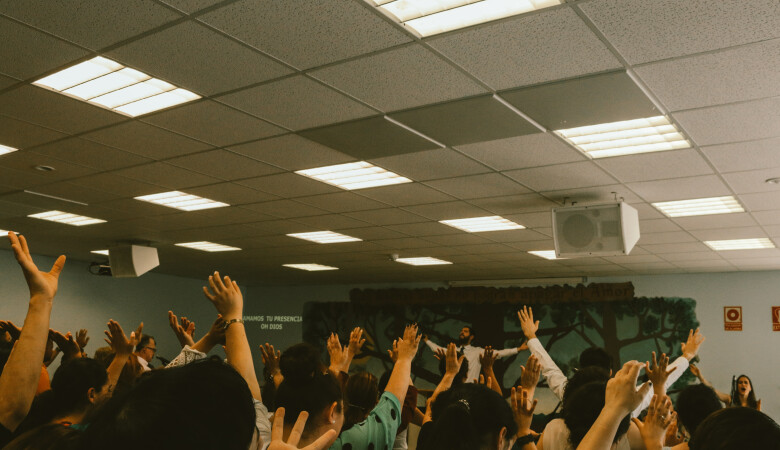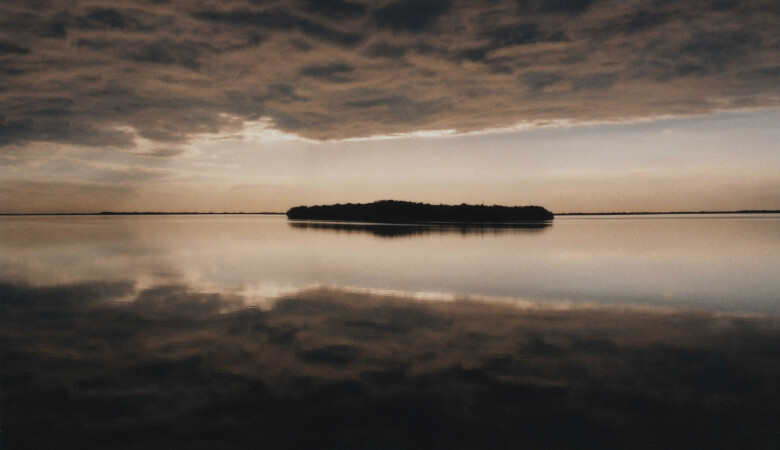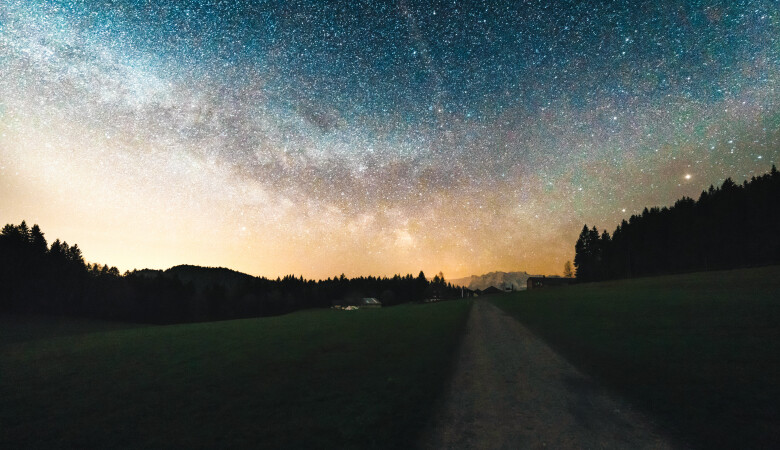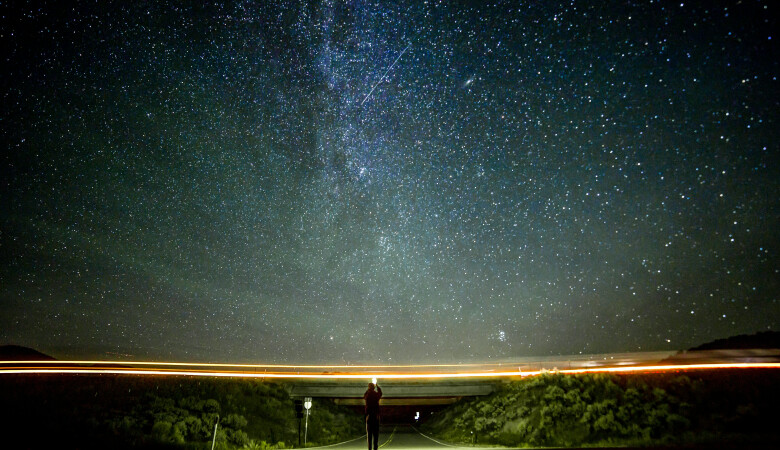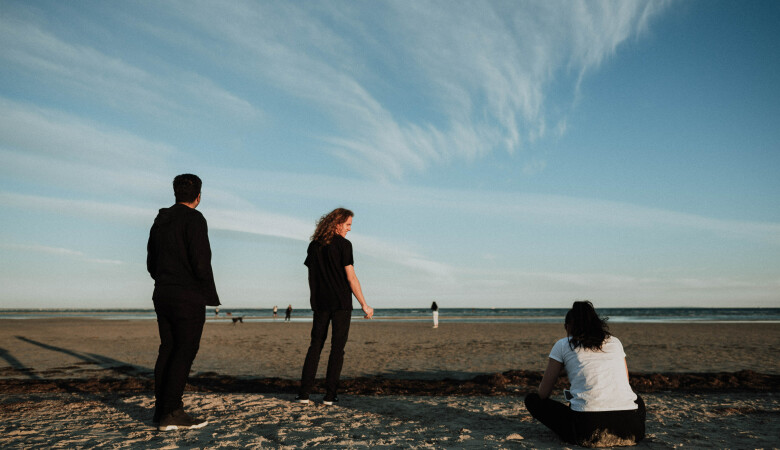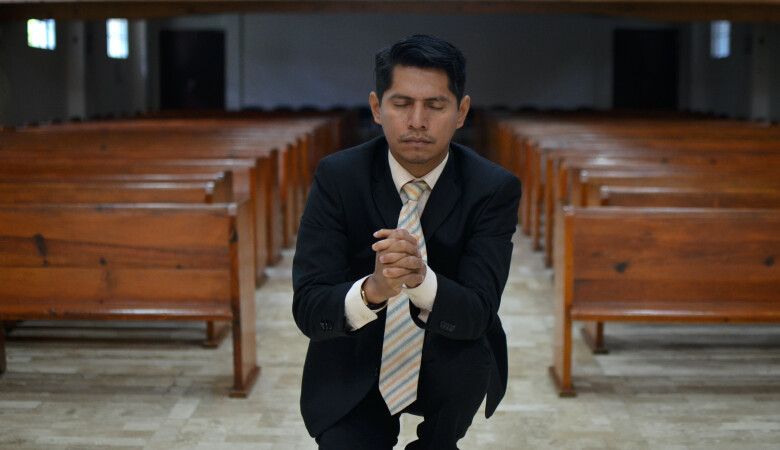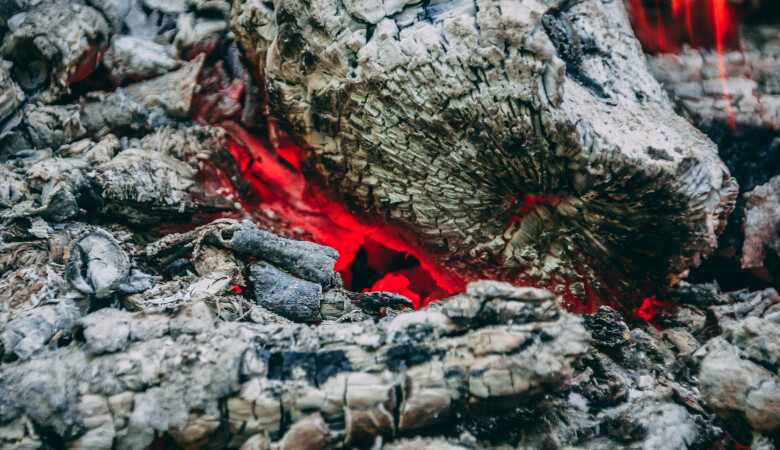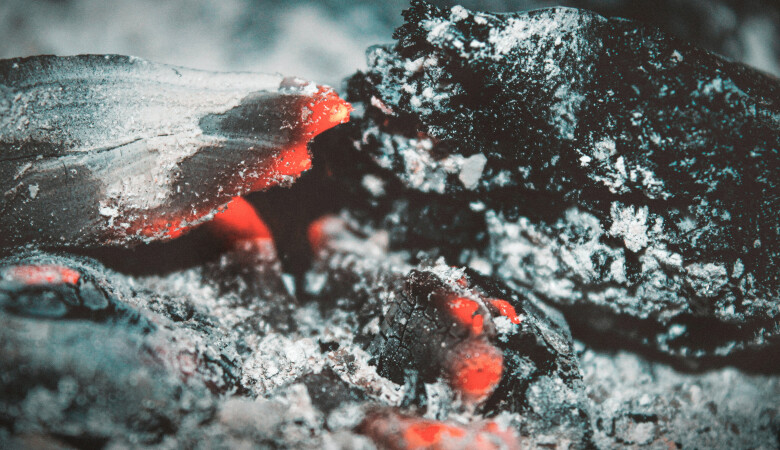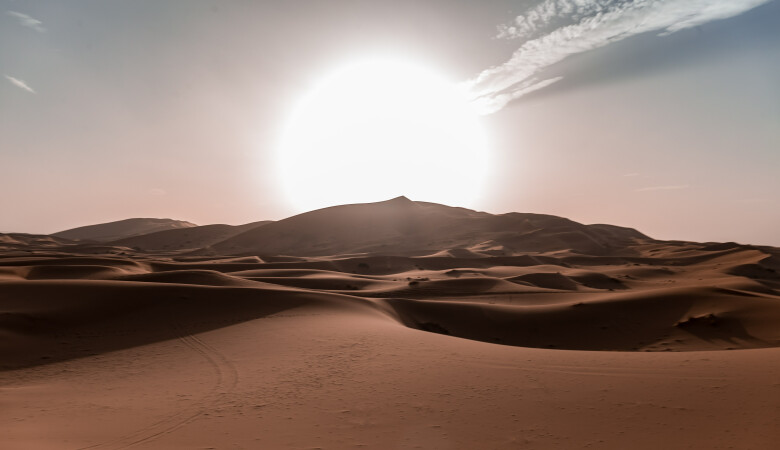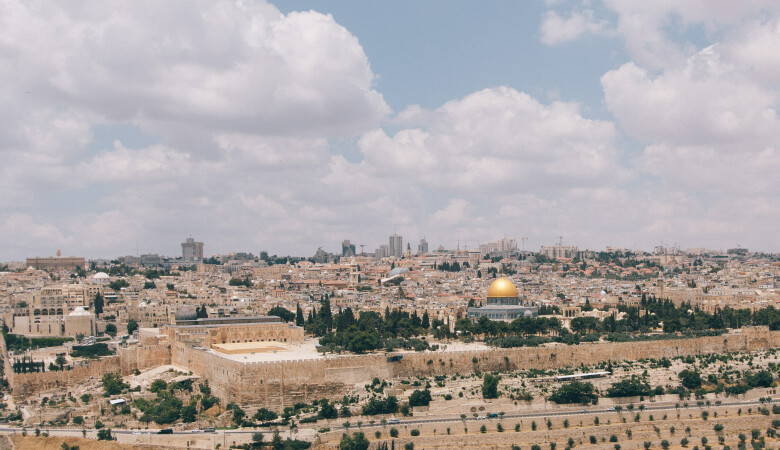A New Beginning: Noah Exits the Ark
October 24, 1999 | Andy Davis
Genesis 8:1-22
Covenants, Thankfulness
Pastor Andy Davis preaches an expository sermon on Genesis 8. The main subject of the sermon is the end of God's judgment and Noah's exiting of the ark.
- SERMON TRANSCRIPT -
Why don't you take your Bibles and open them to Genesis 8. We're gonna continue in our series in Genesis. And today, we're gonna let Noah off his ark. Isn't that good news? Now it's only been three weeks for us, but it was well over a year for him, so we should praise God that our trials are small by comparison.
Recently, I was thinking just about numerous aspects of this story, and I fixated on the element which God used to destroy the ancient world to cleanse it and then to prepare for the new world, and that is water. Water. And I found a writer who had written something about this, and I'd like to read it to you. It really struck me, and I think it may strike you as well.
Every day, we are surrounded by a very ordinary substance, which is extraordinary in its properties, water. It is everywhere in the vast expanse of salty oceans, in the shimmering purity of mountain lakes, in the gurgle of bubbling brooks; water covers nearly three-quarters of the surface of the earth. Add it all together. There are over 324 million cubic miles of water on this earth. If all the water on earth were gathered onto the United States, it would cover our country to a depth of 90 miles. Because of water's strange properties, its ability to absorb vast amounts of heat before boiling, its ability to climb by capillary action so that it defies gravity. It's remarkable ability to float when it becomes solid, its ability to dissolve almost anything put into it, and it's almost indestructible stability. All of these make water one of God's central achievements in creation. Water has literally shaped the surface of the earth, frozen into immense and slowly creeping glaciers, it has chiseled out of granite, the landscape which surrounds us. Deep ravines and canyons have been carved by the force of water. Rivers have flowed over softer areas, carrying topsoil and even boulders over hundreds of miles. Through gentle rainfall or mighty storms, water continues to change the shape of the shoreline and the contour of mountain tops. Water provides the power of restless ocean waves, the gentle mist from a marsh, the explosion of five billion tons of moisture in a small hurricane, and the soft wisps of a high cloud. Water has also been a constant force in the development of human civilization. Life itself is impossible without water. Life can exist in some places without light, but no place can it exist without water. Our very bodies themselves are over two-thirds water by weight. This very moment, your blood is flowing like a watery river through your body, carrying nutrients and oxygen to every cell, carrying away waste products from every cell. So also water has been indispensable in the formation of all the great civilizations of human history. From the very beginnings of time, water has provided man with food, through irrigation, with transportation, with power for industry, and with refreshment and health every day. This remarkable substance unites all of life and all of history. The water in the next glass you drink at some point, may have flowed through the Nile or been used for experiments by Archimedes. Or has been used to cool the head of a dying and fevered emperor in China. So indestructible is water, and it was water that God used to make the world in Genesis 1 and to cleanse the world in Genesis Chapter 8.
Listen to the words of Genesis 8:1-22 beginning at verse 24 of the previous chapter. It says: “The waters flooded the earth for 150 days. But God remembered Noah and all the wild animals and the livestock that were with him in the ark. And he sent a wind over the earth, and the waters receded. Now, the springs of the deep and the floodgates of the heavens had been closed, and the rain had stopped falling from the sky. The waters receded steadily from the Earth. At the end of the 150 days, the water had gone down, and on the 17th day of the seventh month, the ark came to rest on the mountains of Ararat. The waters continued to recede until the 10th month, and on the first day of the 10th month, the tops of the mountains became visible. After 40 days, Noah opened the window he had made in the ark and sent out a raven. And it kept flying back and forth until the water had dried up from the Earth. Then he sent out a dove to see if the water had receded from the surface of the ground. But the dove could find no place to set its feet because there was water over all the surface of the Earth. So it returned to Noah in the ark. He reached out his hand and took the dove and brought it back to himself in the ark. He waited seven more days and again sent out the dove from the ark. When the dove returned to him in the evening, there in its beak was a freshly plucked olive leaf, and then Noah knew that the water had receded from the earth. He waited seven more days and sent the dove out again, but this time it did not return to him. By the first day of the first month of Noah's six hundred and first year, the water had dried up from the earth. Noah then removed the covering from the ark and saw that the surface of the ground was dry. By the 27th day of the second month, the earth was completely dry. Then God said to Noah, ‘Come out of the ark, you and your wife and your sons and their wives, bring out every kind of living creature that is with you, the birds, the animals, and all the creatures that move along the ground, so they can multiply on the earth and be fruitful and increase in number upon it.’ So Noah came out together with his sons and his wife and his son's wives. All the animals and all the creatures that move along the ground, and all the birds, everything that moves on the Earth, came out of the ark, one kind after another. Then Noah built an altar to the Lord and taking some of all the clean animals and clean birds, he sacrificed burn offerings on it. The Lord smelled the pleasing aroma and said in his heart, ‘Never again will I curse the ground because of man, even though every inclination of his heart is evil from childhood, and never again will I destroy all living creatures as I have done. As long as the earth endures seed time and harvest, cold and heat, summer and winter, day and night will never cease.’”
I. A God of New Beginnings
I bet you'll never think of water the same way again. I know I didn't after reading all that. We're surrounded by it all the time, but we are not surrounded in the same way that Noah was. I can't even imagine what it must have felt like to go through the events of this chapter. Just how fresh and how pure that air must have smelled to Noah when he first stepped off the Ark. He stepped off into a new world, a new creation to some degree, one that had been cleansed from all of human sin, all of the rebellion and the wickedness that had characterized Noah's age before him. The judgment of God had come and had cleared away all the wretchedness and the wickedness. And now it was time for a new creation, and Noah was going to experience it. I can't even imagine what it must have felt like.
The flood had prevailed on the earth at that point for 150 days, it says in chapter 7:24, “And so the earth was totally submerged.” I believe there had been catastrophic circumstances which had surrounded the flood, it wasn't a gentle flood, a gentle rising of water and then receding, but I think that the surface of the Earth had been rent, that the flood gates from down below had erupted somewhat like an earthquake, of course, they've been deluged for 40 days and 40 nights. The earth would never be the same again. Catastrophic circumstances, perhaps even a rupturing of the earth crust under the power of God.
II. The Prevailing Flood
And it was at this time the flood covering the whole Earth, that the overwhelming majority as I believe of the fossils that have been found were made. Now, I've done a little bit of research thinking about the fossils, some people believe that fossils are the greatest evidence for evolution, but you know at the very beginning of the theory of evolution, Darwin acknowledged that the biggest problem for his theory was the fossil record, because it showed no indication whatsoever of evolution, instead, these kinds certain...
Simply appear, fully formed. There's no transitional states, whatever, but rather they are all in one place at one time. But the more that you look at it, the more amazing the whole thing becomes. Most of the fossils are in a certain layer called the Cambrian layer, and all of them were formed at a certain time. What's remarkable is there's a simple theory about geology that says that if you have a structure of earth piled up like that, the lower surfaces are older than the upper surface. Doesn't that make sense? That you get the older ones first, and then it gets younger and younger as you go on. The problem is that we don't see that at all on the earth, actually, it's reversed, and why? Because of the clinging to evolution that many scientists have. They say, Well, this species had to come before this one. Instead, what I believe is that all these species were fully formed by creation, and they all come together at the same time, and they're deluged during the time of the flood. Actually, the fossil record speaks much more of a flood than it does of evolution. Oxygen in the air destroys things as soon as they die. As soon as they begin to die, they begin to be destroyed, and also scavengers begin to pick at it.
Fossils are very hard to come by, and so you need some kind of cataclysm to cover over living creatures immediately. And that cataclysm was the flood. So as these waters prevailed on the earth for 150 days, that fossil record was being formed, it speaks very clearly of the veracity of the scripture. And I was talking to somebody a little bit earlier, and we were talking about all of these things, and there's so much to discuss when it comes to Genesis. I'd like to give you all kinds of things, but more than anything, what I'd like to give you is a total certainty or confidence about the Word of God. Every single word that has come to us in scripture is inspired. A year ago, when I was preaching through 2 Timothy, we came to Chapter 3, and it says in verse 16, “All scripture is God-breathed and is useful for teaching, rebuking, correcting and training in righteousness.” The scientific theories tend to undermine people's confidence in the word of God, but the Scriptures testify very clearly of a God who does not change and who dealt vigorously with sin and with the world through this flood, and we can have total confidence in it. At that time, when the waters were covering the surface of the earth, Noah, day after day was living in that dark... Shall I say smelly experience with all those animals on the ark.
I think if you add it all up, you're looking at well over a year, perhaps 53 weeks on the ark, depending on how you measure the calendars. There were just small openings for sunlight, perhaps just a little bit of light and air coming in from the top. Remember in Chapter 6, God had told him to finish the ark, cover it with pitch to within 18 inches of the top, so it's all watertight within 18 inches of the top, and then in chapter 8:13, it says that Noah removed the covering from the ark so there were some kind of, I believe, water-tight covering, perhaps somewhat like we have in the tabernacle. In the tabernacle, you've got the skins of the dugong, which some people believe is like a porpoise or something like that, which covered over the tabernacle, the tent, and kept it safe during a rainstorm. I think you get the exact same thing here.
So you can imagine the enclosed feeling, it's almost like a tomb being inside that ark for over a year. And so this had to be a joyful time for Noah. Noah had to care for these animals, take care of them day after day, feed them and nurture them. And so I think his heart was yearning for the judgment to be over and for the time to come out of the ark. And then, in chapter 8:1, it says, “But God remembered Noah.”
III. God Remembers Noah
Now, the first two words in the NIV are, “But God”. And those are tremendous words. What it implies is a certain flow or a certain direction, and then God enters in and changes everything. It reminds me very much of what it says in Ephesians 2, it says that all of us were dead in our transgressions and sins, in which we used to live when we followed the ways of this world and of the ruler of the kingdom of the air, the spirit who is now at work in those who are disobedient. All of us also lived among them at one time, gratifying the cravings of our sinful nature and following its desires and thoughts like the rest, we were by nature, objects of wrath. Ephesians 2:4, “But God, because of His greatness, the greatness of His love and mercy for us in Christ made us alive with Him.” Isn't that amazing that God just steps into your situation, into all of the sin, into all of the rebellion, and by his mighty power is able to change everything? And so Genesis 8:1 begins with the words, but God, judgment had covered the earth, the water was prevailing, but God steps in, and it says that God remembered Noah.
"Isn't that amazing that God just steps into your situation, into all of the sin, into all of the rebellion, and by his mighty power is able to change everything?"
Now, don't think that for any moment, God forgot about Noah, it's not that at all. This is covenant language. We talked earlier today about a covenant, a binding agreement, or a legally binding agreement between two or more parties. And so what God is doing is He's saying, I am remembering my covenant faithfulness to you, Noah, I'm going to protect you and your family. At this moment, it means that God is beginning to act on behalf of Noah and his family and to reverse the waters of the flood. And so God sends a healing wind over the surface of the earth covered with water, he begins to work through the wind. And I think this reminds me very much of Genesis 1, and I think it's no accident, God is seeking to recreate the world.
You have the separation of the waters from the dry land in Genesis, and also you have the moving of the wind in Genesis 1:2 that God's spirit, the word in Hebrew is ruach it means the same thing as wind, God's spirit was moving over the surface of the deep. And so now here again, He's recreating the earth, covered with water, he separates and moves by the power of this wind. The restructured Earth is ready to receive all the water. Some critics say, Where did all the water go?
Well, I think what happened was that the basin of the Pacific Ocean got dropped down. So also the Atlantic. I don't think there's any reason to assume that everything was exactly the same before the flood, we have this tremendous ripping and shredding of the Earth, and so there's this deepening of the base into a depth of over seven miles. Well, enough room for all the water that cover the earth, so the basins deepen, and then the water recedes gradually into the place that God had assigned for it. In Psalm 104:6 and following, it says, “You covered the Earth with the deep as with a garment, the water stood over the mountains, then they went down into the valleys to the place you had assigned for them, you set a boundary they cannot cross. Never again will they cover the surface of the earth.” Isn't that marvelous?
So there it is in Psalms, it says very clearly, what happened, you've got a dipping down of the earth to accept all the water that had covered the earth. And then it says in Verse 4, that The Ark which is floating, came to rest on the mountains of Ararat. Now, I told you earlier that there've been numerous expeditions looking for Noah's ark. And they all focus on the highest mountain in the Ararat region. The problem is, the Hebrew here is plural, so you can't focus on just one mountain, you have to look at them all.
So I really would not recommend that any of you invest any time and certainly no money in the search for the physical ark. You've got a huge region to be searching for. And I believe it's not God's way of leaving physical artifacts. We're so idolatrous we're constantly wanting to worship physical things. What do you think people would do if Noah's actual ark were found? I think they'd be cutting it up and sending it to religious shrines all over the earth. It's just a marvelous thing, so don't spend much time looking, but I think you need to look at the text, Genesis 8:4, the mountains of Ararat, just a region. That's where it was.
And the real issue here is the providence of God. There was no navigation system on the ark, God just providentially moved it around where he wanted it to go, kept it from capsizing, He was watching over them the whole time, and at the right time, they settled down in just the place where God had them to go. But this was, I believe, for Noah a tremendous test of patience, and we see it in Verses 6-14, especially, lingering trials.
Have you ever noticed that trials come very suddenly, but then recede very gradually? Have you ever noticed that? Isn't that the way life is? Is moving along in life, and all of a sudden something comes and just changes everything. And then it takes a long time for the effects of that to be worked out. And so it is with the flood. It comes on suddenly, but now a long time for it to be removed, and what does this call for from us? It calls for patience, for perseverance, for standing under what God is doing during the entire duration of the trial. And so Noah is a picture, I believe, in these verses of patient hopefulness. It says after 40 days. Isn't that remarkable? He waits 40 more days, and he opens the window that he had made for the ark, and he sends out this raven.
And by the way, I think all this patience is just more evidence of the providence and the kindness of God, and that there were no children on the ark. Have you ever been on a long journey with children? What is the first thing they're asking after about two hours, "Daddy, are we almost there?" No we are not almost there, we've got a long way to go. So you just sit here and wait. Can you imagine. Shem, Ham, and Japheth were extremely fruitful after the flood, but before the flood, no children, providence of God. Alright, he's watching over them, and I think it would have been torture for those families and those young children as they were waiting for it. But Noah, he's patient and he's waiting.
After 40 days, Noah opened the window he had made in the ark, and he sent out a raven, and the raven kept flying back and forth. Now a raven is an unclean bird, it's an unclean bird. It's a scavenger bird, it can eat any kind of decaying flesh, and perhaps it's possible that there was some at that point. It's also a symbol to some degree of uncleanness, even of evil, sending it out and the raven is moving back and forth, and it's not really finding a place to rest, ultimately the raven leaves for good, it's gone. And they never see it again. But then Noah sends out the dove.
Now, unlike the raven, the dove is a symbol of purity, a symbol of holiness. You remember it was as a dove that the Holy Spirit descended and landed on Jesus at his baptism. It was a dove that Mary and Joseph offered when Jesus was born. It's a symbol of purity and of holiness. And unlike the raven it's unwilling to land on fouled surfaces, initial reports are discouraging for Noah. And I think it's so beautiful how Noah is using these birds, there's a bonding that has occurred between Noah and the animal kingdom that he has been watching over. And so he does not have the physical capability to go out and see the extent of the flood, but he uses these animals, these birds, to go out and do the work for him. He's in control over that ark and control over the animals, and he uses their capabilities for his purposes. And so he sends out the raven and then the dove.
IV. Noah’s Test of Patience
But the initial reports are discouraging, and he's gonna spend seven more days in the belly of that floating tomb, the ark. But ultimately the dove comes back with a second report, and this one is more encouraging, it brings with it the branch of an olive tree, a freshly plucked olive branch. Never in all creation was someone happier to see greenery than was Noah at that moment when he took that bird into his hand.
And hasn't it become the symbol of peace? The dove with an olive branch in it, the symbol of the ending of hostilities, and in this case, so it is the judgment is over, and pretty soon the world will be ready for human habitation. And so, in Verse 12, “The dove departs again, never to be seen again. He waited seven more days, sent the dove out again, but this time it did not return to him.” The dove has found a new home, the first of living creatures to find a place, a location, and it will begin its new life there. Then Noah makes his final preparations in Verse 13 and 14, Noah's age has been carefully measured off at this point, Noah is 601 years old, the first day of the first month. In chapter 7:11, Noah was 600 years, two months, 17 days old, when he entered the ark, so we can add up all the days that Noah had been on the ark. At this point, there's still 57 days left to go on the ark. God is testing Noah's patience.
And I think it's really humbling for me to look at the trials in my life and compare them to what some of these other folks went through. But Noah was being stretched and being made to wait by God, 57 more days to go, but at this point, Noah takes the covering off the ark. And I've already told you about the covering physically, I think its purpose was to keep the rain off so that it would be deflected. But I think there's also a theological significance as well.
First of all, just in terms of Noah's own relationship to the Lord. Do you know it said Noah never does anything except waiting on the Lord? He's not presumptuous at all, he waits until just the right time to take the covering off the ark. The rain has not been falling for a long time, it just fell for 40 days and 40 nights, but he's waiting until God says so. Until God says to do it, he does nothing apart from the command of the Lord. But there's an even deeper theological significance, and that is just the covering of protection that God provided for Noah. It's a protection that is reflected ultimately in the cross of Jesus Christ.
In Genesis Chapter 3, with the sin of Adam and Eve, what's the very first thing they do after they commit the sin? They find fig leaves for covering, remember? And what does God do? He says that your own personal attempts at covering yourself are insufficient, I will cover you. I will cover your sin, and so there's an animal sacrifice, and then they're covering with skins, in Genesis 3.
And so also the Jewish people on their day of atonement, the Jewish word is your Yom Kippur, which means day of covering, day of covering, atonement is a covering of sin by God. And there is no atonement, there is no covering available other than the blood of Jesus Christ. And so this covering that Noah has over this ark is a symbol of the covering that Jesus gives us for sin, protection from the wrath of God, that's what it is. When you come to the cross, you come to a place of shielding and protecting from the wrath and judgment and curse of God. All of us deserve it because of our sin. And there's only one place of shelter, spiritually in all the universe, and that is the blood of Jesus Christ shed on the cross, and so that covering over the ark is a picture of the blood of Jesus Christ.
But the time physically for the covering is over, and so Noah removes that ark and as he looks around, he sees that the ground is completely dry. He gets his first real glimpse at the new world. Now, I have no idea what the old world looked like. I've been saying to you that I believe that there was some kind of a water vapor canopy around. I think the Earth looked different. I don't know that the mountains were as high before the flood as they were afterwards, I think there was a raising of the mountains and a lowering of the ocean basin, I really have no idea, but I really believe it was a different world that he was looking at at that point. In Chapter 9, we talk about the rainbow. It could be that there were just different atmosphere conditions, before the flood as opposed to after. It was a new world, and for the first time, Noah is looking at it. Weather patterns were strange, a different feel of the atmosphere perhaps. A whole different world and a new world created by God.
And I think this really does pre-figure to some degree to picture our experience when we will come into the new heavens and the new earth. God says that he is going to make a new heaven and a new earth, and he calls it in 2 Peter 3:13,”The home of righteousness.” All of you, every one of you who have come to personal faith in Jesus Christ, you will enter into that home of righteousness through faith in Christ. Aren't you looking forward to it? Don't you wonder what it's gonna look like? The new heavens and the new earth which God is gonna make by his own creative power? This is a sin cursed world, it's subjected to futility, and yet it's beautiful, isn't it?
Can you imagine a perfect world? Just think about it, meditate on it, spend your afternoon meditating on that, don't watch a ball game, lay on your bed and just think about the new heavens and the new earth, the home of righteousness. It says in Hebrews 1:10 and following, it says, “ In the beginning, oh Lord, you laid the foundations of the Earth, and the heavens are the work of your hands, but they will wear out like a garment, you will roll them up like a robe and throw them away. But you remain the same and your years will never end.” Isn't that a beautiful thought? God's gonna take this world and remove it, and he's gonna create a new heaven and a new earth.
V. God’s Command, Noah’s Freedom
And so I think to some degree, Noah could've experienced that when he stepped out onto the deck of the ark and looked around and saw the new world for the first time. And it says in Revelation 21:1, “Then I saw a new heaven and a new earth, for the first heaven and the first earth had passed away, and there was no longer any sea.” In verses 15 through 19, we see God's command and Noah's freedom. God gives him a command, the command he's been waiting for, at last, then God says to Noah, Come out of the ark, you and your wife, your sons and their wives, and bring every kind of living creature with you.
Again, notice that Noah does not even think to leave the ark except at the command of God. This is the kind of life that Christians should live. If you call yourself a Christian, you should be clinging to the mouth of God. It says very plainly in Matthew 4:4, “Man does not live by bread alone, but by every word that comes from the mouth of God.” We're supposed to be right at the mouth of God saying, What should I do next? What should I do next? I believe that this should be very practical with you. You, if you're a Christian, when you wake up, you should get down on your knees physically, if you're able, and say to God, I am your servant, this day is your gift to me, I am bought with a price, I'm not my own, what do you want me to do today? And just serve Him that way. Is this not the kind of obedience that God requires of his servants? And this is the way that Noah was, he didn't do anything except to the command of God, did not leave the ark except to the command of God.
And at last, Noah's patience and his hope are rewarded. We see Noah's moment-by-moment obedience, the consistent pattern of his life. And we see at last that God rewards this. But you know Noah's obedience was nothing, nothing compared to that of Jesus Christ, the Son of God. Jesus Christ, though being in very nature God, did not consider equality with God, is something to be grasped, but made himself nothing. And it says in John chapter 5, “I tell you the truth, the Son can do nothing by himself, but only what He sees His Father doing.” I do nothing on my own, I only do what God told me to do. That's what Jesus said. He never stepped out on His own, but only what the Father told him to do. What's good for the Son of God is good for us as well. We must obey God step by step, moment by moment. And so Noah did nothing without God telling Him to do it, and Noah did everything God told him to do.
"Noah's patience and his hope are rewarded. We see Noah's moment-by-moment obedience, the consistent pattern of his life. And we see at last that God rewards this."
You know, I've thought often, recently about this, and Jesus Christ would rather die than disobey His father. Do you realize that? I mean, literally would rather die than disobey the command of God. That is true, and it should be true of us as well, that we would rather die than sin against God, that's our goal in sanctification as we grow. But I believe that this kind of life may seem restrictive to a non-Christian, consistent obedience to the commands of God, but it's a life of freedom, freedom from sin, freedom from guilt, freedom from judgment, freedom from anxiety, and the freedom of a servant. You gotta write this one down, Psalm 119:32, this is a great verse. Psalm 119:32 says this, “I run in the path of your commands, for you have set my heart free.” Isn't that great? I run in the path of your commands for you've set my heart free. That's the freedom that Noah experienced. He understood the freedom that comes from obedience to God.
And so as he comes out of that ark, he offers a grateful sacrifice to God and God makes him a gracious promise versus 20-22. Noah's joyful gratitude. Do you know that your salvation should prompt you to say, Thank you to God all the time? You can never say thank you to Jesus enough. Do you remember that story about the 10 lepers, and he cleanses all 10 of them, but only one takes the time to come back and say Thank you? But that was just for cleansing from leprosy. How much more to be cleansed of all your sins through faith in Jesus Christ should you be coming back day after day after day to Jesus, right to his feet, and say, Thank you, Jesus, that you died on the cross for me?
And so in effect, that's what Noah is doing, as he comes off this ark, the first thing he wants to do is say Thank you to God, the very first thing. He doesn't omit it, he doesn't forget it, he wants to thank God. Salvation should prompt thankfulness, and so Noah gives a sacrifice from a heart of gratitude. Thankfulness should be the center of your heart of worship. When you come here on Sunday morning, you shouldn't be thinking, Well, I hope the music's good today. Well, I hope that preacher doesn't bore us with long stories or lengthy explanations of this or that. You shouldn't be thinking about that at all. You should be coming and saying, I wanna say thank you to you, Lord, and I wanna give you praise and glory for my salvation, and I wanna hear from you, I wanna hear your word, whatever you have to say to me, I wanna hear it. That's the approach you should take when you come to worship.
Hebrews 12:28 says, “Therefore, since we're receiving a kingdom that cannot be shaken, let us be thankful, and so worship God acceptably with reverence and awe.” And so Noah offers a hard sacrifice. Don't underestimate what that sacrifice cost him. You may be thinking about your own stewardship and how much your giving cost you. Well, might you think about that, but realize this, that Noah, all he had in the world was on the ark, and when he took a valuable animal and sacrificed, that was an act of faith and trust in God, wasn't it? It was a sacrifice for him. And so he offered that sacrifice and he did it on an altar, this is the first mention in all scripture of an altar, up to this point, there's been no mention of altars, it was probably just a simple pile of stones. No iron tool used to engrave it or anything special, just a pile of stones, and then he offered a sacrifice on this, and it was a lavish generous, and faith-filled sacrifice as well.
And at this point, God smells the aroma of the sacrifice, and he expressed his pleasure. The aroma is pleasing to Him. Let me ask you a question, do you think that the smell of burning animal flesh was pleasing to God? Not at all. It was the aroma of Noah's faith wafting up before God, it was his faith, his obedience, his gratitude, that was pleasing to God, that aroma is delicious to God. It says in Philippians 4:18, talking about financial offering that was made to Paul, and Paul says that your gifts, your offerings are a fragrant offering, an acceptable sacrifice pleasing to God. It's an aroma that goes up before God. It says in Revelation 8, that all of your prayers offered in faith are like bowls of incense wafting up before the throne of God, and he smells it. And it smells good to him, it brings Him pleasure. Your faith, your heart obedience.
But even more than that, this animal sacrifice was also a picture of the sacrifice of Jesus Christ on the cross. All animal sacrifices were. From the very beginning in Genesis 3, right on through. Animal sacrifice pointed ahead to a perfect and complete sacrifice. If someone were to ask you, why did Jesus die on the cross? What would you say? Would you be able to explain the heart of your faith? That our sin deserves the wrath of God? That all sin deserves the death penalty, and that Jesus Christ came to pay that death penalty in our place as a substitute? Isn't that the lesson of a sacrifice? It's the animal that dies not me. And so when you're giving a sacrifice to God, you're in effect saying, I deserve that, but God by His grace transferred the guilt off me onto the sacrifice. And so he did that in His Son, Jesus Christ. The blood of animals and goats and bulls could never take away human sin. It was just a picture of perfect sacrifice. And so Jesus Christ offered that at Calvary. When Noah got off the ark, he didn't fully understand all that, but by faith, he followed the same forms of worship, and he offered to God a sacrifice.
Now, the sacrifices that God asked for us, are a broken and contrite spirit, which comes in faith to Jesus Christ and says, I need you. I need the death that you offered for me so that I might have eternal life. And then God makes a promise, and he says, Never again will I curse the ground because of man, even though every inclination of his heart is evil from childhood. God makes a promise to never again curse the earth... The curse here is not the curse that he gave at the time of Adam, it's the curse of the entire flood. Flooding the entire surface of the earth. Yes, there would be smaller judgments, there would be smaller floods, much like happened to our neighbors in Eastern North Carolina. Much suffering and even death, but never would he curse the entire surface of the earth with a flood again. He's making a promise, a covenant, commitment. And it says that God said this in his heart. Do you ever wonder about that? If God said it in his heart, how do we know about it? How do we know this? If your friend says something in his or her heart, do you know what they're saying? Can you read their mind, only if they tell you what they've said in their heart. And so God told us what he committed himself to and why so that we will be secure.
We could feel insecure in this world. Noah could have felt insecure, can you imagine coming off the Ark after a tremendous flood and wonder, Am I even gonna survive the year? If I ever sin against God, is he going to strike me down? God said, I'm not gonna do it. But I'll deal with you with grace and with mercy and with forgiveness. And so God establishes the cycle of seasons. He's going to uphold the natural order as long as the earth endures, seed time and harvest, cold and heat, summer and winter, day and night, will never cease.
The regular cycles of seasons, and I believe they were new at that time, I think there was a whole new feeling to the four seasons at this point. The regular cycle of seasons would never end until the end of the world. But this would only be as long as heaven and earth endure. Notice that God has spoken carefully, 'cause there will come a time when heaven and earth will not endure any longer. And then there will be a new heaven and a new earth, and we will be into a new covenant relationship with God.
As we've looked at Genesis chapter 8, what applications can we take from this tremendous chapter? First of all, look at lessons concerning Noah, patience in a trial. Are you in some kind of trial right now? Stand firm under it, be patient, wait for God's deliverance in his time, don't murmur or complain against him, but wait patiently. Be hopeful in your waiting. Don't wait as though you are suffering a tremendous trial, but wait with hopefulness, the sending out of the raven and the dove was evidence of Noah's hopefulness, isn't it? Be hopeful that way.
Step-by-step obedience, as we've talked about, that was Noah's true freedom. Don't do anything apart from the command of God, don't live on your own, but live under the submission of the Lordship of Jesus Christ. And be grateful for your sacrifice, be grateful for your thanksgiving, be grateful for all that God has given to you. Be grateful for the sacrifice that Jesus Christ made for you.
And live by faith. When God has commanded you, when he has told you what to do, trust that what he has said, will come true. It really comes down to the simple commitment to believe what God's word has said that it will come true. And yet in the midst of all that, the one lesson, and we'll see it next week, is that Noah, as faithful as he was, still had sin in his heart. That's why he offered sacrifice. Because he's a sinner, just like you and me. Those are lessons from Noah. What lessons can we learn from God? The first is God's faithfulness. God remembered Noah. God will remember you. God has made a covenant relationship with you in Christ, and as he was faithful to that covenant with Noah, so he will be faithful to the covenant he made with you.
Also, look at God's power. God is fully capable of covering the entire surface of the earth with water, having it stay as long as he wants, and then removing the water and having it stay in the place that he had assigned. He's fully capable of doing that. Jesus said to the Sadducees, You're in error because you don't know the Scriptures or the power of God. Never underestimate the power of God. Also, understand God's pleasure. When God smelled the aroma of Noah's faith and His trust and His thankfulness, it was pleasing to God. You should also be living constantly for the pleasure of God. You should be living at every moment to please your Heavenly Father. If you please, God, you yourself will be pleased as well.
And finally, God's gracious promise. He made a promise in regarding the flood, that it would never happen again, and he made a promise concerning the cycles of nature that they would never cease. In all of these things, we see the true character of God.



